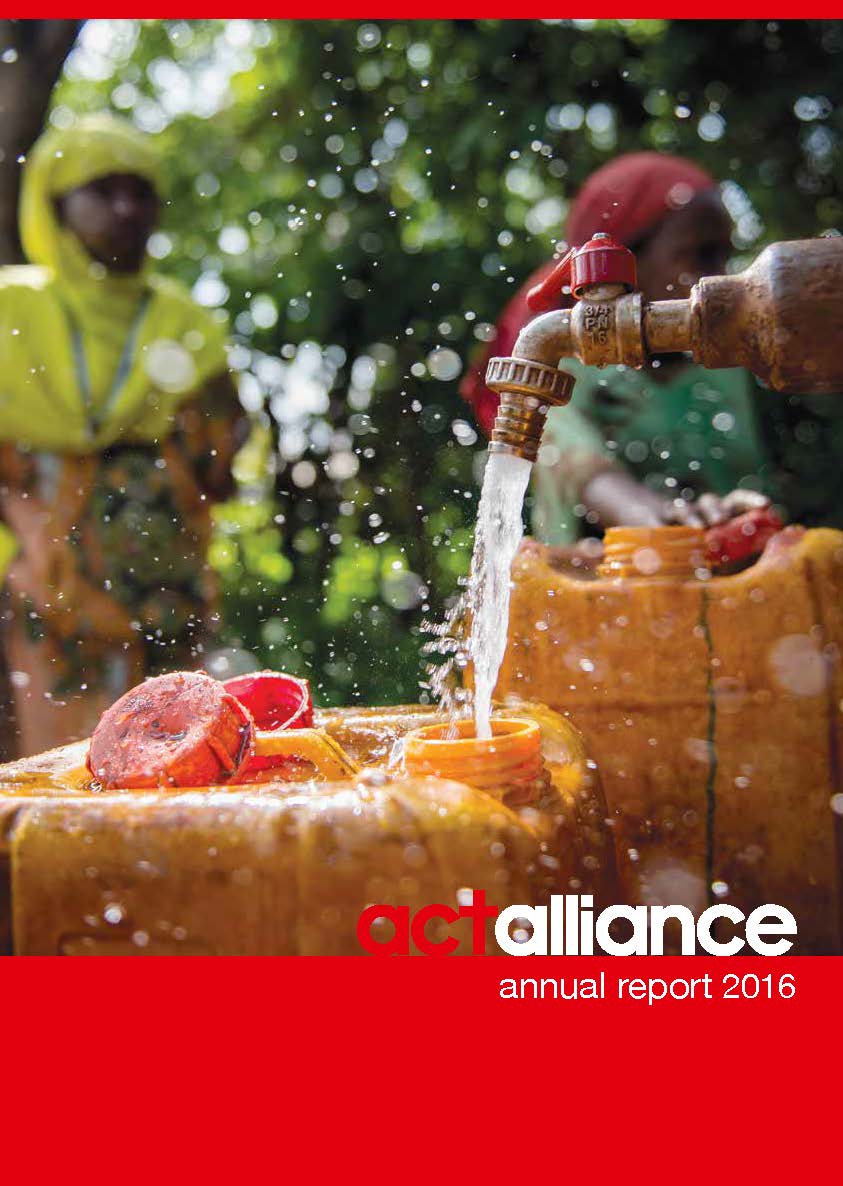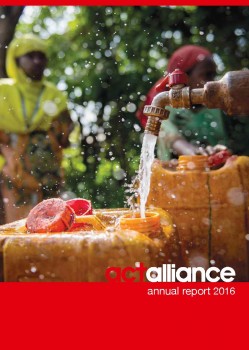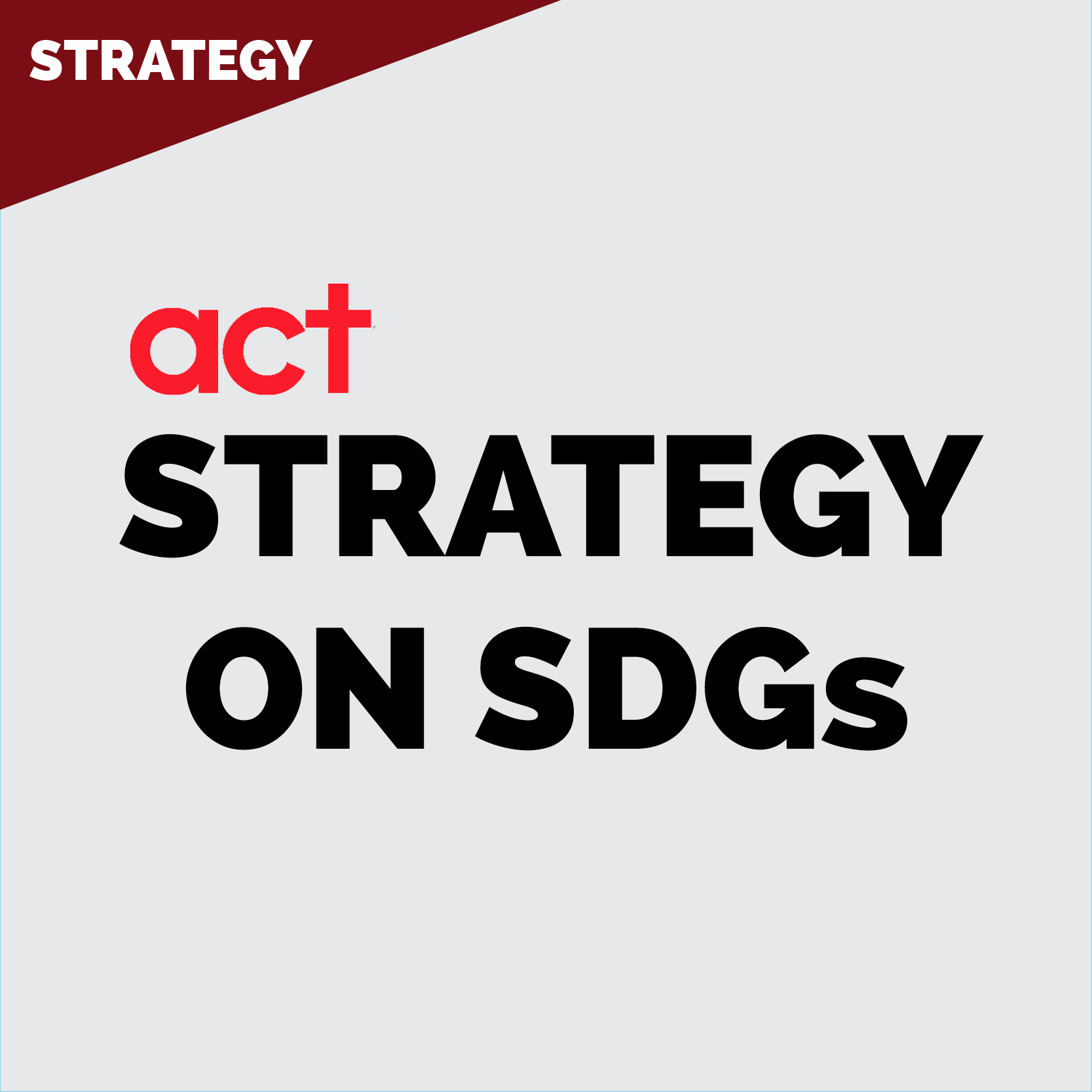Fundraising strategy
ACT Alliance Climate Change Advocacy Framework Position (2016 – 2018)
The ACT Alliance climate change advocacy framework position paper is designed as a broad outline of the policy areas and approaches that the alliance is working on. It serves as the general vision and guide for ACT Alliance’s climate change advocacy, campaigning, and messaging by providing a political and strategic framing of various thematic areas.
Thematic areas include:
- Climate justice
- Gender and human rights
- Community resilience (adaptation, loss and damage)
- Low greenhouse gas emission development
- Means of implementation (climate finance, capacity building)
- Campaigning and mobilisation for ambitious implementation of the Paris Agreement
The ACT Alliance Climate Change Framework Position is available for download in English and Spanish
ACT Alliance Climate Change Framework Position (2016-2018) – English
ACT Alliance Climate Change Framework Position (2016-2018) – Spanish
ACT Annual Report 2016

 ACT Alliance is the largest Protestant/Orthodox alliance in the world that engages in humanitarian, sustainable development and advocacy work, with over 140 members present and working in 125 countries around the world.
ACT Alliance is the largest Protestant/Orthodox alliance in the world that engages in humanitarian, sustainable development and advocacy work, with over 140 members present and working in 125 countries around the world.
Together, we strive for a world where all may live with dignity, justice, peace and full respect for human rights and the environment.
ACT Strategy on SDGs

The 2030 Agenda for Sustainable Development, including Sustainable Development Goals (SDGs), adopted by the UN General Assembly in September 2015 brings together 17 goals with 169 targets in an ambitious and comprehensive programme to transform the world by 2030. As such, it presents both huge opportunities and challenges. Much has been written about the SDGs, and it is beyond the scope of this paper to analyse the framework itself. However for ACT Alliance, as it moves to develop a strategic approach to its engagement with the framework, as important as the goals themselves, are the set of common principles that underpin it and which parallel ACT’s own understanding of transformational development.
ACT Strategy on SDGs (ENGLISH)
ACT Social Media Policy
However, ACT Alliance also recognises that social media, regardless of the localisation of the content, has a global reach that can impact positively or negatively not only on those groups involved in social media communication, but also on the over 140 member organisations that associate with the ACT Alliance brand.
This is because the ACT Alliance brand represents not only individual member organisations or groups, but a global network which must be taken into account in all forms of global communication. Social media content and messaging in the name of the ACT Alliance brand that is not in line with the ACT Alliance policies and values risks damaging the ACT Alliance brand for all members of the alliance.
This policy serves to ensure consistent messaging and communication in the name of ACT Alliance across social media channels in line with the ACT Alliance brand. In this way the brand can be managed, protected and preserved. The policy stipulates the requirements and responsibilities with which the ACT Alliance secretariat staff, ACT Alliance structures such as ACT Forums, Communities of Practice and Advisory Groups, and staff of ACT Alliance member organisations must comply when communicating through social media channels under the banner of, on behalf of, or in the name of ACT Alliance.
ACT Social Media Policy June 2017 (English)
ACT Política-Redes Sociales junio 2017 (Spanish)
ACT Politique-médias sociaux juin 2017 (French)
Call to Action: WCC, AACC and ACT Alliance on overcoming hunger and sustaining justice and peace in the Horn of Africa
On June 28th and 29th 2017, members of the ecumenical family along with national and international organizations gathered at the All Africa Conference of Churches in Nairobi, Kenya for the “Mobilisation of faith communities for overcoming hunger and sustaining justice and peace in the Horn of Africa”. Together, faith leaders developed a ‘Call to Action’.
Read the full ‘Call to Action’ here: https://actalliance.org/wp-content/uploads/2017/07/Call-to-Action-Overcoming-Hunger-_June-2017.pdf
Gender Justice Policy
ACT Alliance believes in an end to gender inequality and injustice, gender-based discrimination and violence, and in closing the gender gap and address unequal power relationships for the promotion of human dignity for all. To this end, the ACT Alliance expects each member to develop a board-approved, gender justice policy which is specific and relevant to their local cultural and programmatic context within three years of the adoption of this ACT Alliance Gender Justice Policy.
While there has been progress on gender equality in some countries, women in many parts of the world suffer discrimination and are under-represented in decision-making processes. Violence against women remains an endemic problem inhibiting their full participation of women in their communities, economies and societies. When a humanitarian crisis occurs gender inequalities are even more acutely highlighted. In such situations, women, young girls and boys form the most vulnerable groups and are exposed to greater risk of sexual violence in particular. In recent years there has been growing evidence of violence, harassment, discrimination, exclusion, stigmatization and prejudice directed against people because of their gender and sexual identities.
The response to humanitarian and development needs and rights must be designed in a way that it pays attention to identifying the different needs, capacities and unique contributions of different individuals and groups. Ignoring these aspects has serious implications for the survival and protection of people and may create set-backs in efforts at long-term improvement.
Thus, all initiatives ranging from emergency assistance, recovery, reconstruction through to long term development, should utilize and benefit from gender sensitive analytical tools and approaches.
The first ACT Gender Equality Policy Principles were approved by ACT International Emergency Committee, 18 April 2008. On 6 September 2010 a revised policy was adopted by the ACT Alliance Governing Board, considering the broader mandate of ACT Alliance. Another revision was done in 2017 to make it congruent with existing standards and commitments adhered to by ACT Alliance. The 2025 revised policy includes a reference to the theological foundations, developed the policy’s mandatory nature and aligned this with the overall Quality and Accountability Framework of the Alliance. This policy applies to the ACT Secretariat, all ACT Alliance members, and affiliated staff/volunteers, to improve the quality and accountability to our commitments on gender justice.
ACT Alliance Gender Justice Policy 2025 English
ACT Alliance 2016 audited accounts
ACT Statement for the Global Platform for DRR
The Sendai Framework on DRR has a global target of “substantially reducing the number of affected people globally by 2030, aiming to lower average global figure per 100,000 in the decade 2020 -2030 compared to the period 2005-2015”. This is among the seven global targets agreement upon by States. ACT (Action of Churches together) Alliance, a coming together of about 140 faith-based organizations across the globe, is among those stakeholders who committed to work to reduce vulnerabilities by increasing “public and private investment in disaster risk prevention and reduction through structural and non-structural measures are essential to enhance the economic, social, health and cultural resilience of persons, communities, countries and their assets, as well as the environment” as stated in the third priority area for action of the SFDRR.
ACT Alliance has activated communities of practice across 4 major regions Asia-Pacific, Africa, Latin and Central America and Europe to significantly increase the proportion of its humanitarian investment that goes to community preparedness, prevention and resilience, with a target that over 10% of ACT Alliance programming should be invested in emergency preparedness and risk reduction especially at the grassroots and community level. ACT Alliance does so with knowledge that investing in resilience, we will give due attention to the root causes of vulnerabilities, such as inequalities and injustices, that make vulnerable more at risk to disaster-related hazards.
However, as we do our share, ACT Alliance realizes that more needs to be done in addressing root causes of vulnerabilities if resilience, that empowers, is to be achieved. Thus, ACT Alliance calls on States and other stakeholders to (1) recognize the value of empowerment and enhancing social capital and social safety nets in addressing disaster-related risks. Investing on entitlements that affirm human rights and dignity are key to reducing vulnerabilities to evolving and powerful natural and human-induced hazards humanity now face.
We also recognize that our attempts to address disaster risks will not be sufficient to prevent disasters unless there is a clear recognition of the role climate change plays in increasing vulnerabilities and in the creation of disasters. Our partner communities living near the glaciers of the Andes suffer not only from flooding due to the fast-melting glaciers, but also long-term food insecurity due to lack of water for agriculture from the melting ice caps that once regularly nourish their fields. There are many communities in the various continents now threatened by climate-related hazards especially where temperatures have risen to create heat waves and creeping drought, cyclones that are increasing in intensity, increased heavy precipitation that evolve to destructive floods. ACT Alliance calls for the (2) recognition of the synergy between the implementation of the SFDRR, the Paris Climate Agreement, the WHS Commitments to Action and the Sustainable development Goals (SDGs) and the importance of implementing these frameworks in a manner that is pro-poor, ambitious, equitable, gender sensitive and human rights based.
The projected disasters in the near future can still be addressed only if (3) investments from the public and private sectors are significantly increased to address root causes of vulnerabilities such inequality-related poverty . Furthermore, providing (4) the enabling environment for innovations to address disaster-related risks and (5) the access to technologies that address practical and strategic risks like water security in the face of droughts and slow-onset hazards (such as those happening in Africa or displacement, loss and damage to economic and non-economic assets due to rapid onset events such as those happening in Asia-Pacific) will increase capacities to address challenges.
(6) Meaningful and substantive engagement of civil society organizations especially faith-based organizations provide the opportunity to reach the most at risk communities, even in remote conditions, and engage them in resilience-building. Organizations, such as those engaged in ACT Alliance, have made it their core mandate to be with the most vulnerable. While the contribution of faith-based organizations to risk reduction and resilience-building is invisible to many, faith-based and other community-based and managed organizations have continued to stand witness to the power of faith and social capital in the face of disaster and climate-related risks.
Together, and with a common aim of reducing loss of lives and assets, we can achieve a more sustainable development through determined risk reduction and resilience-building.